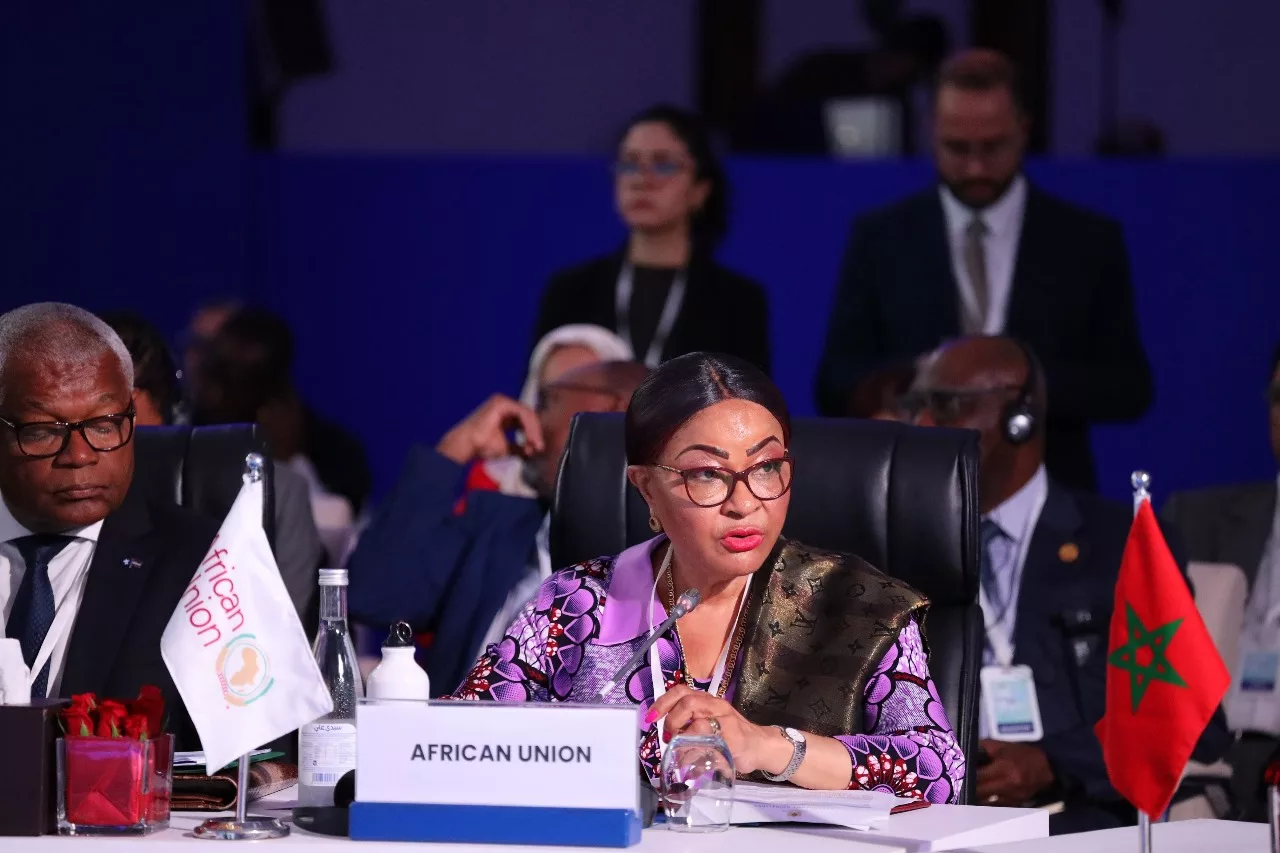|
Getting your Trinity Audio player ready...
|
Women are the backbone of the agricultural sector in Africa and play a crucial role in the continent’s agri-food system, the Commissioner for Agriculture, Rural Development, Blue Economy, and Sustainable Environment Josefa Correia Sacko said in Addis Ababa, Ethiopia.
Speaking on International Rural Women’s Day, celebrated on 15 October, Josefa Sacko said that women are the guardians of the traditional knowledge and practices that sustain agri-food systems.
“Despite their significant contributions, women, particularly those living in rural areas, often face numerous challenges, including limited access to education, technology, and resources,” she emphasised.
In her view, these challenges are further exacerbated by natural disasters such as disease outbreaks, climate change, and limited access to schools, which disproportionately affect this group.
On top of this, there is access to quality education, which is crucial and fundamental for women, and the theme of this year’s celebration is “Empowering women living in rural areas through education and access to technology: Bridging the gap to inclusive and sustainable agri-food systems in Africa”.
“Education is a powerful tool for empowerment. By providing rural women with access to quality education, we can equip them with the knowledge and skills they need to improve their livelihoods and contribute effectively to their communities, “said the AU’s portfolio holder for agriculture, rural development, blue economy, and sustainable environment.
She said that this reflects a collective commitment to creating an enabling environment for women living in rural areas to thrive and be agents of change, in line with the African Union’s overall theme for 2024, ‘Educating an African fit for the 21st century’, which emphasises the need to build resilient education systems to increase access to inclusive education.
She emphasised that it is important to bridge the gap to inclusive and sustainable agri-food systems to overcome the barriers that prevent rural women from fully participating in and benefiting from these systems.
She said this requires specific policies and programmes that promote gender equality, support women’s access to land and financial services and provide training in sustainable agricultural practices.
She said that the road ahead is still difficult, but the resilience and determination of African women living in rural areas inspires hope and optimism.
“With the right policies, investments, and partnerships, we can unlock their potential and create an Africa where rural women not only thrive, but lead the transformation to sustainable, inclusive, and resilient agri-food systems,” added the AU Commissioner.
She recalled that the African Union Commission is committed to empowering rural women through education and access to technology, and continues to work with member states, development partners, and civil society organisations to implement initiatives that support the empowerment of rural women.
On one hand, the Zimbabwe Gender Commission (ZGC) said this year’s theme, “Rural Women Cultivating Good Food for All,” resonates deeply within Zimbabwe, where rural women are the backbone of our agriculture.
According to the Food and Agriculture Organization of the United Nations (FAO) approximately 80% of women in communal areas make up 61% of the farming community and contribute an impressive 70% of agricultural labour.
Alarmingly, many are classified as unpaid family workers, dedicating 16 to 18 hours a day – 49% to agricultural activities and 25% to domestic responsibilities. Despite constitutional recognition of gender equality and non-discrimination in Section 56, women face systemic barriers limiting their voices, choices, and control over their destiny. This manifests in unequal access to, control over, and ownership of resources.
The ZGC said the ongoing El Niño-induced drought exacerbates the challenges faced by rural women, as they are disproportionately affected by climate-related disasters. This situation leads to increased vulnerability due to crop failures and livestock losses, causing severe food insecurity and malnutrition in their households.
“Women, often responsible for fetching water and firewood, experience increased workloads and reduced opportunities for education and income generation. The economic stress induced by drought also heightens the risk of gender-based violence, further jeopardizing the wellbeing of women and their families.
“Insecure land tenure remains a crucial issue, preventing many women living in rural areas from owning the land they farm, thus hindering their ability to invest in improvements and access credit. Limited access to agricultural inputs such as seeds and fertilizers, along with discrimination in agricultural extension services, further impedes their productivity and adaptability to climate change,” the ZGC said.
In that regard, the Zimbabwe Gender Commission calls upon the government and relevant stakeholders to take immediate action on the following:
- Implement gender-sensitive policies that promote women’s rights to land and other
- Ensure equitable access to agricultural inputs and training for
- Facilitate women’s participation in decision-making processes at all
- Address the impacts of climate change on livelihoods of women living in rural areas through targeted support and resources.
- Raise awareness about the link between economic stress and gender-based violence, providing support services for affected women.
The commission added that empowering rural women is essential for achieving the national goals of food security and gender equality.
“As we work toward Sustainable Development Goals 2 (Zero Hunger) and 5 (Gender Equality and Women Empowerment), let us recognize that women living in rural areas are key to rebuilding our food systems and fostering resilient communities.
“The Commission reaffirms its commitment to advocating for the rights and empowerment of women in rural Zimbabwe. Together, we can cultivate a future where every woman has the opportunity to thrive and contribute to the well-being of her community and country.”






